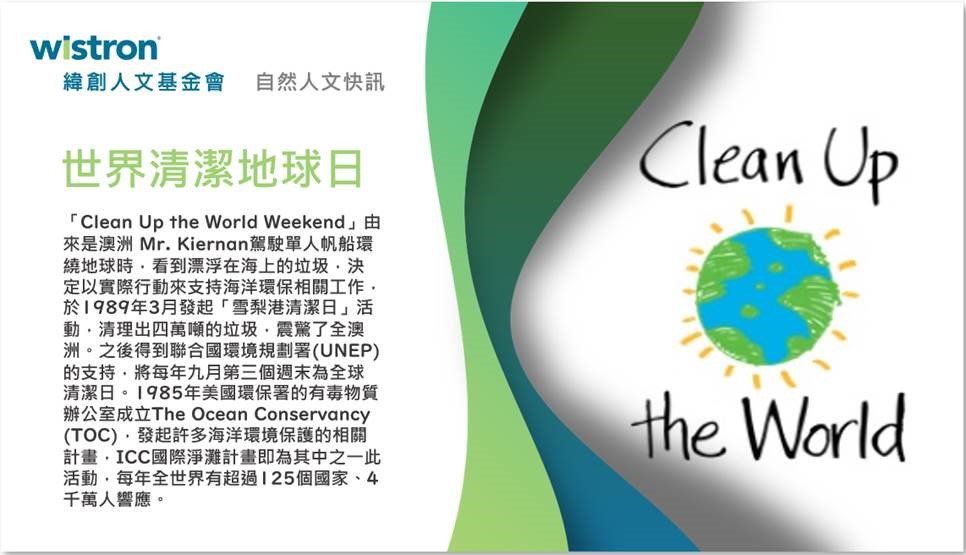
What part of the Earth requires cleaning the most? That’s right. It is the ocean, which covers nearly 70% of the Earth!
As human life advances, and as we strive to create better living environments, we are also creating pollution in the oceans. In other words, ocean pollution is created by the direct or indirect dumping of trash into the ocean ecosystem (including estuaries and bays) by humans. The pollution damages biological resources and marine life in the ocean, and pollution can be harmful to human health. Simply put, ocean pollution is caused by human activities. The most serious of which, and the most directly connected to you and me, is ocean waste created by human activities, or otherwise known as trash in the oceans.
According to reports published by Green Peace, 8 million tons of plastic waste is released into the ocean every year. Around 50 trillion plastic fragments can be found in the world’s oceans. The ocean pollution report published by Pew Charitable Trusts and SYSTEMIQ in July 2020 stated that the amount of plastic released into the ocean will reach 29 million tons per year by 2040. Scientists have found trash made by humans in the stomachs of various marine life as well as marine life ingesting microplastics. Furthermore, with the great Pacific garbage patch (an island made of garbage that stretches from the waters surrounding California to Hawaii that covers an area 44 times bigger than Taiwan) the problem of ocean waste is something that can no longer be ignored.
The Foundation has been a long-term social welfare partner of Tainan Community University. Starting in October 2005, they have continually organized beach cleaning activities. Besides simply collecting the garbage, they also investigate, record, and analyze the types of garbage found on the beaches. Where does the garbage come from? How can we reduce the amount of garbage on the beaches? After two years of monitoring, the results showed that 70 percent of the waste consists of polystyrene. Among which, polystyrene used in the fishing industry ranked first in terms of amount, and polystyrene cups ranked second. Because of this, Tainan Community University began focusing their plastic reduction efforts on polystyrene used in the fishing industry and polystyrene cups. The data was used to advocate and participate in public meetings. After years of hard work, the Tainan City Government was the first to implement laws that ban the use of polystyrene containers in 2013, and continues to promote the use of more environmentally friendly oyster shed flotation devices.
Besides the promotion by public departments through legislation, a bigger driving force behind plastic reductions is actually you and me. Everyone can become a guardian of the oceans. We can do our part during our everyday lives. During the annual World Cleanup Day, the Foundation invites you to start implementing waste reductions in your lives and work together to protect the environment.
Avoid disposable plastic products
Do not drink bottled water and avoid disposable tableware, including plastic bowls, disposable spoons, and disposable plates, to greatly reduce the production of plastics.
Avoid cosmetics or cleaning products that contain microplastics
When purchasing personal hygiene products, please be mindful of the ingredients. Avoid using products that contain artificial microplastics, such as polyethylene (PE), polypropylene, or nylon.
Use your own environmentally friendly shopping bags
On average, a person in Taiwan uses up to 782 plastic bags every year (which is 3.9 times the average of EU countries)! Bring your own reusable baskets, backpacks, or cloth bags to replace plastic bags, in order to alleviate the burden on the Earth.
Bring your own environmentally friendly cups
Most disposable plastic products are used for less than five minutes. The problem of the plastic garbage patch is worsening for the sake of convenience.
Remove garbage on beaches
Participate in beach cleaning activities if you have the chance to restore the cleanliness and beauty of the beaches.
Purchase non-packaged foods
Visit stores or farmers’ markets that allow the customers to use their own containers when making purchases to avoid unnecessary packaging.
Recycle waste
Reuse waste plastics for other creative purposes, such as transform plastic bottles into pots and trays for plants, or even fashionable accessories. Waste recycling is also another concrete way of implementing waste reductions.
Special note: Source of the beach cleaning photos: Tainan Community University




 中
中